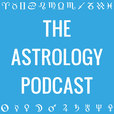
Summary: <br> <br> In episode 145 astrologer and academic historian Levente László joins the show to talk about the origins of the fourth branch of western astrology, known as horary astrology.<br> <br> The focus of the episode is the mysterious origins of horary astrology, and the question of when and how it was originally developed.<br> <br> As discussed in episode 116, <a href="http://theastrologypodcast.com/2017/07/13/horary-astrology-questions-with-lee-lehman/">horary astrology</a> is the practice of casting an astrological chart for the moment of a question, and then attempting to answer the outcome of the question based on the analysis of that chart.<br> <br> There are some questions about the origins of horary astrology because in the later astrological traditions from the 9th century forward it became a very popular and widely used practice, but in the Hellenistic tradition from the 1st century BCE through the 7th century CE references to horary are distinctly rare.<br> <br> During the course of this discussion we review some of the evidence for horary in the Hellenistic tradition, and try to reconstruct the history of how it developed.<br> <br> Below you will find the show notes, which contain some of the points we touched on in the episode, followed by links to download or stream the recording of the discussion.<br> Show Notes<br> <br> * In the Medieval and Renaissance traditions, horary was a very popular practice.<br> <br> * From the 8th through the 17th centuries.<br> * It became the 4th branch of the tradition, after mundane, natal, and electional.<br> <br> <br> * A chart is cast for when a question is posed to an astrologer.<br> <br> * The astrologer tries to answer the outcome of the question based on the chart.<br> * Often largely using the rulers of the houses and their perfection or lack thereof.<br> <br> <br> * Terminology<br> <br> * Originally called "questions", "interrogations", “inquiries”.<br> * Byzantine Greek erotesis, Arabic masa'il, Sanskrit prasna.<br> * William Lilly in the 17th century called it "horary astrology questions".<br> <br> * This eventually became shortened to "horary astrology".<br> <br> <br> <br> <br> * It is immediately apparent that there is little to no discussion of horary in Hellenistic.<br> <br> * This raises the question of why?<br> * Was horary practiced then, and we just don’t have much evidence of it?<br> * Or was horary not around yet during that early period? Developed later?<br> <br> <br> * I published a paper in the NCGR journal in 2007 on this titled the <a href="http://www.chrisbrennanastrologer.com/Brennan-Katarche-of-Horary.pdf" target="_blank" rel="noopener">Katarche of Horary</a>.<br> <br> * Up until that point everyone assumed horary was practiced in the Hellenistic trad<br> * My thoughts have grown and changed since then, but some core points still good.<br> <br> <br> * None of the Greco-Roman skeptics mention horary or criticize it.<br> <br> * Odd since Cicero, Augustine, and Sextus mention all three other branches.<br> <br> <br> * Natal seems to have been the primary practice, some electional, and even less mundane<br> * The Hellenistic evidence for horary really comes down to two or three sources:<br> <br> * A few references in book 5 of Dorotheus, which is on electional.<br> * A few 5th century horoscopes from Zeno’s astrologer, including three about ships.<br> * Some passages attributed to Hermes of uncertain date.<br> * Yavanajataka.<br> * That is pretty much it.<br> <br> <br> * The first full treatments of horary don’t appear until the later in the 8th and 9th centuries.<br> <br> * Theophilus, Masha’allah, and Sahl ibn Bishr.<br> * See the recent discussion about Theophilus of Edessa with Ben Dyke...
